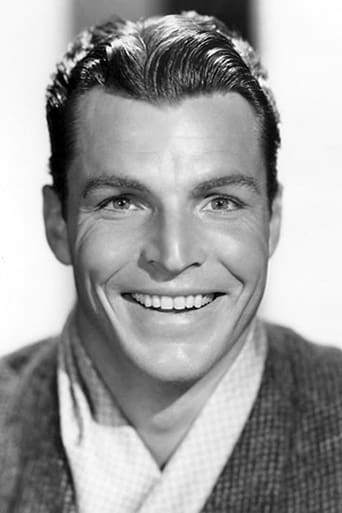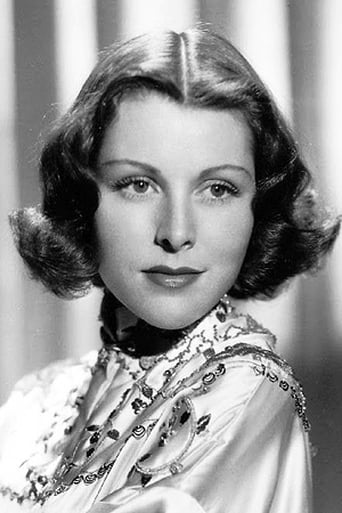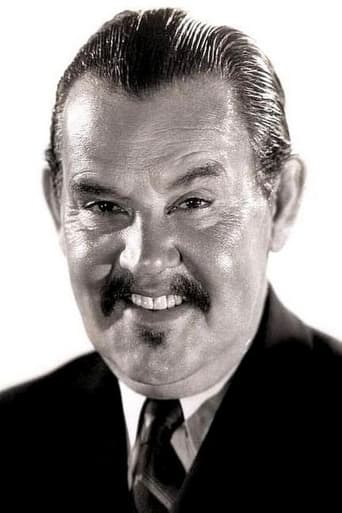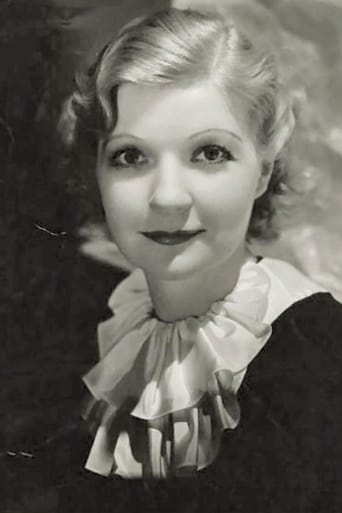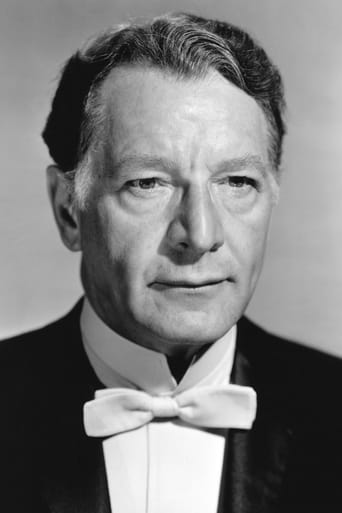john2240-1
I saw this film only once, at the age of seven, in 1933. Even allowing for the fact that we saw fewer films then and that seven is an impressionable age,"King of the Jungle" was exceptional. Many of its powerful cinematic images have remained as active and vivid memories throughout my life, now into my 80's.Overall the film posits a romantic, if unrealistic, idea of an intelligent, informed and physically able man who lives at ease within a natural environment and amongst its wild inhabitants. This idealised image, modified and matured over a lifetime has influenced my values and those of my family for many years. None of us can escape the thought that our environment may call us to account at any time and require us to meet similar demands.Early in the film we see the father of a small family arranging for them to fly over a nearby jungle in a light aircraft. While he is preoccupied at the desk his small son behind him, apparently moved by curiosity, gently takes his father's knife from its sheath at the back of his belt. The knife remains with the boy long after he is the sole survivor of the subsequent plane crash in the jungle. As he grows up this tool remains his one concession to modern technology.We see the orphaned boy playing with some young lion cubs in a clearing and when the mother lioness returns he crawls on all fours with his companions into a cave like lair, calmly followed by the lioness. We next see him fully grown, with the convincing physique of Buster Crabbe, at ease not only with lions but with all creatures. Later action-scenes illustrate and reinforce the idea of a well developed, athletic man in harmony with a respectful animal kingdom.This happy natural order of things is shattered when Kaspa is captured by a group of hunters, commissioned by a circus to "bring back alive" a variety of wild animals. This they intend to do but his captors do not know what to make of the unique and frightening specimen, Kaspa. Stout wooden cages are erected for the different breeds on the deck of their ship and the "savage" is locked in one by himself. As the laden ship approaches its destination a customs official comes aboard to examine the cargo. He declares that Kaspa is undeniably human and must be released from his animal cage. On the instant of his release, Kaspa takes one step onto the gunwale and entirely without hesitation, dives into the sea, which of course, holds no fear for him. The shocking and explosive speed of his action remain an indelible memory.Having thus escaped he makes for the shore and enters a comfortable dwelling which is full of strange and intriguing objects, but he is familiar enough with the contents of a goldfish bowl to take a modest drink from it. When interrupted, he hides behind a convenient screen but the lady of the house sees his bare feet under it and he is revealed. Hilarious for a seven year old! He continues to show his doubts about civilisation and his preference for things natural, but he is disarmed by the female of his species and he is persuaded to appear in a circus act with his lions. He astounds everyone when he refuses to take a pistol into the caged ring. He emerges from the action as morally superior. The film ends with Kaspa and his lady, both fully dressed in sun hats and whites, returning to the Jungle and we are left to speculate whether they can make it as its King and Queen. Although not nominally a Tarzan film, as an evocation of the ideal of the noble savage, this memorable film is closer to the spirit of Burroughs's writing than many of the later films which bear the Tarzan title. You will understand that I am delighted to learn that it is now possible to purchase a copy of "King of the Jungle 1933" from TVideo.com John Fulton 2007
lugonian
KING OF THE JUNGLE (Paramount, 1933), directed by H. Bruce Humberstone, from Charles T. Stoneham's novel, "The Lion's Way," is an adventure story that capitalizes on the current success of TARZAN, THE APE MAN (MGM, 1932), that starred Olympic swimming champion Johnny Weissmuller. While it's quite evident for rival studios to come up with imitations of their own, this appears to have been the only one made during the height of all those "Tarzan" adventures and the long series of popular sequels and carbon copies. Paramount acquired its own Olympic swimming champion in the physique of Larry "Buster" Crabbe, much taller and broader shoulders than Weissmuller, in a Tarzan-like imitation as Kaspa, the Lion Man, but unlike "Tarzan," this one didn't develop into a "Kaspa" series in spite of it's somewhat left open conclusion.The story opens in the jungles of Africa where coming down a hill is a little boy (Ronnie Cosbey) in safari clothes roaming about by himself. He encounters little lion cubs, starts playing with them until the mother lion approaches. She carries the boy away, but eventually allows the youngster to continue to play with her cubs. This epilogue fades some twenty years showing the development of this little straight haired blond boy into a grown-up curly darker-haired jungle man sporting a leopard skin loincloth, roaming about the jungle helping his lion friends. Enter the white hunters who encounter this half-naked native who only communicates in grunts and groans. He's captured and caged up labeled as "what is it?" in a cargo ship bound for America along with the lions, where he is to be sold off as a circus attraction. However, close to port, Kaspa escapes his captivity, swims towards the city where he is soon noticed by spinster passersby taking a stroll through the park one day. They notify the police that they have spotted a naked man in the area. Pursued by the police, Kaspa enters into an open window to the apartment of Anne Rogers (Frances Dee), a schoolteacher, and her roommate, Sue (Nydia Westman). After offering him some food and seeing he could be tamed, especially since he's captivated by her beauty, Anne, after encountering Kaspa's captures, agrees to assume her new position in educating and civilizing the jungle man while becoming part of a lion act at the circus. In spite of his fame and fortune, Kaspa finds he's not happy with his new life and wants to return to Africa, taking the lions with him, but is faced with certain situations holding him back.In watching KING OF THE JUNGLE, one cannot help but compare this to the Edgar Rice Burroughs character. Unlike the "Tarzan" adventures, KING OF THE JUNGLE takes a different turn in not being set entirely in the jungle. It does consist of some wildlife scenes in the beginning, but nothing memorable nor climatic as those frequent crocodiles fights or native uprising in the Tarzan tradition. During its second half which finds Kaspa in civilization, he is taught to read, write and speak in an articulate manner by his teacher girlfriend (not like the MGM series where Tarzan speaks only in mono syllables), as well as abandon his jungle attire while off duty from the circus to go seen fully clothed, predating Weissmuller's trip to the Big Apple by nine years in TARZAN'S NEW YORK ADVENTURE (1942) which has Tarzan in Stone Jungle wearing fashionable suits. However, much of the true action in KING OF THE JUNGLE takes place in the circus portion highlighted by a fire blaze where Kaspa risks his life to save his caged animal friends, especially the lions.Although a good story, there's really no explanation to Kaspa's origins, who his people are, and why and how he, as a little boy of 3, ended up in the jungle of cubs in the first place. Could it be that there was an airplane crash, for instance, by which the youngster became the lone survivor? How did he acquire the name of Kaspa? Did scenes such as the aforementioned wind up on the cutting room floor before its theatrical release? Aside from Frances Dee as Kaspa's newfound mate, Sidney Toler as the circus owner, Irving Pichel and Douglass Dumbrille add fine support, along with Warner Richmond Barrat as the drunken circus worker responsible for the fire, and Patricia Farley as a circus employee/ flirt who has her her eyes on Kaspa, only to be told by the educated jungle man in his new English vocabulary to "Scram!" as she tries to get his attention. In the mid 1970s, aside from seeing this movie occasionally on commercial TV, I recall watching "Buster" Crabbe as guest on the long running "Joe Franklin Show," based in New York City on WOR, Channel 9, where he recalled KING OF THE JUNGLE to be the only "A" movie he ever made. Although Crabbe did lose out in playing Tarzan to Weissmuller a year before, he did enact the part in an independent chaptered serial and re-edited feature of TARZAN THE FEARLESS (1933). Much to the delight of Weissmuller fans, Crabbe never played the legendary jungle hero again. Two Tarzans, too many. However, Crabbe did leave a mark in cinema history playing "Flash Gordon" and "Buck Rogers" for Universal's weekly serial department.Out of circulation since it's frequent showings on American Movie Classics in 1989, KING OF THE JUNGLE, which runs at 70 minutes, is currently available on video by logging onto TVIDEO.com (***)
